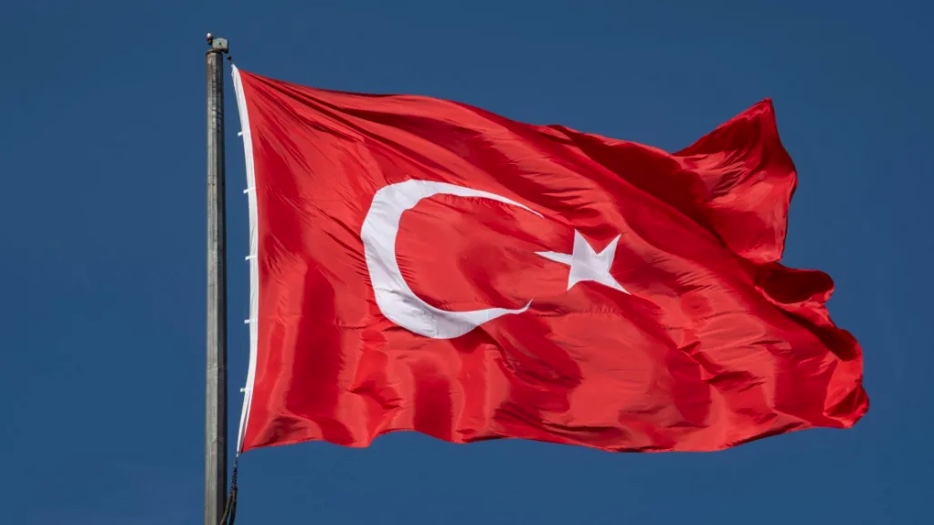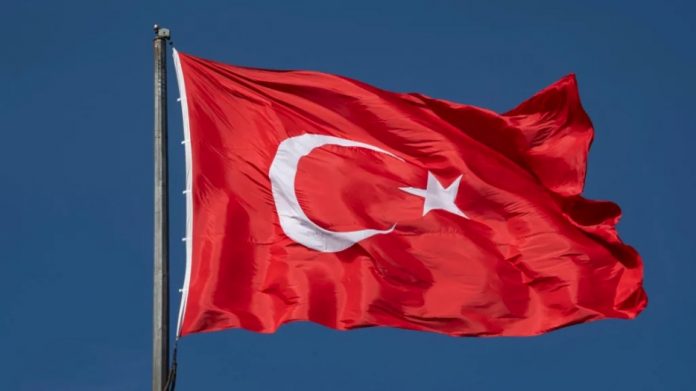สำนักงานข้าหลวงใหญ่ผู้ลี้ภัยแห่งสหประชาชาติ (UNHCR) แสดงความ “กังวลอย่างยิ่ง” หลังมีรายงานว่าเคนยาได้ส่งผู้ลี้ภัยชาวตุรกี 4 คนกลับประเทศตามคำร้องขอของรัฐบาลตุรกี กระทรวงการต่างประเทศเคนยาระบุว่าการส่งตัวเกิดขึ้นหลังตุรกีขอความร่วมมือและด้วยความสัมพันธ์ทางประวัติศาสตร์และยุทธศาสตร์ที่แน่นแฟ้นระหว่างสองประเทศ
คำแถลงดังกล่าวออกมาไม่นานหลังจากมีรายงานว่าหลายคนถูกลักพาตัวในกรุงไนโรบีเมื่อวันศุกร์ โดยชาวอังกฤษคนหนึ่งบอกกับ BBC ว่าเขาและชาวตุรกีอีกหลายคนถูกกลุ่มคนสวมหน้ากากลักพาตัวไป อย่างไรก็ตาม เขาได้รับการปล่อยตัวหลังจากถูกควบคุมตัวนาน 8 ชั่วโมงเมื่อแสดงหนังสือเดินทางอังกฤษให้ผู้ลักพาตัวดู
UNHCR เรียกร้องให้รัฐบาลเคนยาปฏิบัติตามพันธกรณีตามกฎหมายระหว่างประเทศ และเคารพหลักการที่ห้ามส่งกลับผู้ลี้ภัย (non-refoulement) ซึ่งปกป้องผู้ลี้ภัยจากการถูกส่งกลับไปยังประเทศที่ชีวิตหรือเสรีภาพของพวกเขาจะถูกคุกคาม
กระทรวงการต่างประเทศของเคนยายืนยันว่าได้รับคำรับรองจากตุรกีว่าจะปฏิบัติต่อผู้ลี้ภัยทั้ง 4 คนอย่างมีศักดิ์ศรี เชื่อว่าผู้ลี้ภัยเหล่านี้เป็นผู้ติดตามขบวนการกูเลน (Gulen movement) ซึ่งเป็นชุมชนอิสลามที่มีอิทธิพลและมีผู้ติดตามทั่วโลก ขบวนการนี้ถูกกล่าวหาว่าอยู่เบื้องหลังการพยายามก่อรัฐประหารในตุรกีปี 2016 และถูกประกาศให้เป็นองค์กรก่อการร้าย
ตามอนุสัญญาผู้ลี้ภัยปี 1951 ของสหประชาชาติ ผู้ลี้ภัยไม่ควรถูกส่งกลับไปยังประเทศที่พวกเขาจะต้องเผชิญกับภัยคุกคามต่อชีวิตหรือเสรีภาพ
บริษัทกฎหมาย Mukele & Kakai ของเคนยาออกมาเตือนสายการบินต่างๆ ว่าอย่าให้ผู้ลี้ภัยทั้ง 4 คนขึ้นเครื่องบินกลับตุรกี โดยระบุว่าพวกเขาเป็น “เหยื่อของการข่มเหงทางการเมือง” ขณะที่รัฐบาลเคนยาเน้นย้ำถึงความมุ่งมั่นในการปกป้องสิทธิผู้ลี้ภัยและการรักษาความเป็นส่วนตัวของผู้ที่ถูกส่งกลับ
ด้านตำรวจเคนยารายงานว่า กำลังสอบสวนเหตุการณ์ลักพาตัวที่มีพยานเป็นคนขับรถจักรยานยนต์ โดยระบุว่ามีรถสองคันขับสกัดรถเก๋งสีเงินและผู้โดยสารถูกลักพาตัวไปโดยกลุ่มชายติดอาวุธ 8 คน
ขณะเดียวกัน องค์กรนิรโทษกรรมสากลในเคนยาแสดงความกังวลอย่างยิ่งต่อรายงานที่ว่าผู้ลี้ภัยจากตุรกี 7 คนถูกลักพาตัวในประเทศเคนยา
ความสัมพันธ์ระหว่างตุรกีและประเทศในแอฟริกาขยายตัวขึ้นในช่วง 20 ปีที่ผ่านมา โดยประธานาธิบดีเรเจป ทายยิพ แอร์โดอาน พยายามเสริมสร้างความสัมพันธ์ แต่ความสัมพันธ์ใกล้ชิดระหว่างเคนยาและตุรกีเริ่มต้นย้อนไปไกลกว่านั้น เช่น ในปี 1999 ผู้นำแบ่งแยกดินแดนชาวเคิร์ด อับดุลลาห์ โอคาลัน ถูกกองกำลังตุรกีจับกุมในเคนยาและถูกส่งตัวกลับไปตุรกีเพื่อพิจารณาคดี
UN ‘deeply concerned’ Kenya returned Turkish refugees

The United Nation’s Refugee Agency (UNHCR) has said it is “deeply concerned” by news that four refugees were returned to Turkey from Kenya.
The refugees were repatriated at the request of the Turkish government, Kenya’s foreign ministry says.
The statement comes after reports of several people being abducted in the capital city, Nairobi, on Friday.
A British national told the BBC he and several Turkish citizens had been abducted by masked men.
He said he had been released after eight hours when he showed his alleged abductors a copy of his British passport.
In a statement the UNHCR said: “UNHCR urges the Government of Kenya to abide by their international legal obligations, and in particular, to respect the principle of non-refoulement [forced return of refugees], which protects asylum-seekers and refugees from any measure that could lead to their removal to a place where their life or freedom would be threatened.”
Kenya’s foreign ministry said it had agreed to Turkey’s request to repatriate the four men because of the country’s “robust historical and strategic relations” with Turkey, and that it had been assured the refugees would be “treated with dignity”.
The four are believed to be followers of the Gulen movement, a powerful Islamic community with followers in Turkey and worldwide, whose leader has just died.
The Gulen movement runs a network of schools in Kenya and around the world.
Known as Hizmet or “service” in Turkey, it was blamed for a 2016 coup attempt and later declared a terrorist organisation.
Turkish authorities have not yet commented on the repatriation.
Under the UN’s 1951 Refugee Convention, refugees should not be returned to a country where they face serious threats to their life or freedom.
Following the reported abduction, Kenyan law firm Mukele & Kakai said it was acting on behalf of four men who were registered refugees and warned airlines against allowing them to be taken on board.
In a letter seen by the BBC, it described them as “victims of political victimisation”.
The Kenyan government said it had “unswerving commitment to the protection and promotion of refugee rights” and was “committed to the privacy and confidentiality of the repatriated individuals”.
The British national, Necdet Seyitoğlu, told the BBC six other people he knew – all Turkish citizens – were also abducted in the same manner from different locations in Nairobi.
In a statement, the UK Foreign Office said it was “providing consular support to a British man and his family following an incident in Kenya”.
Following reports of the kidnapping, Kenyan police told the BBC they were investigating a “kidnapping incident” after a motorcycle driver witnessed the abduction.
According to the report, two vehicles intercepted and blocked a silver saloon car with two occupants from the front and behind.
“About eight persons armed with weapons emerged from the two vehicles, pulled out the two occupants” and drove off with them, said Kenyan police spokeswoman Resila Onyango.
However, Amnesty International’s Kenya spokesman said he was “deeply concerned by reports that seven asylum seekers from Türkiye have been abducted on Kenyan soil”.
The UN’s refugee agency, UNHCR, told the BBC it was “aware of reports and will provide more information once we have it”.
Turkey’s relationships with African countries has grown over the past 20 years, with President Recep Tayyip Erdogan seeking to strengthen ties.
But Kenya’s close ties with Turkey go even further back.
In 1999, Kurdish separatist leader Abdullah Öcalan was apprehended by Turkish forces in the country and taken back home where he was put on trial, and later convicted, for treason.
By Ian Casey and Anne Soy, BBC News

















